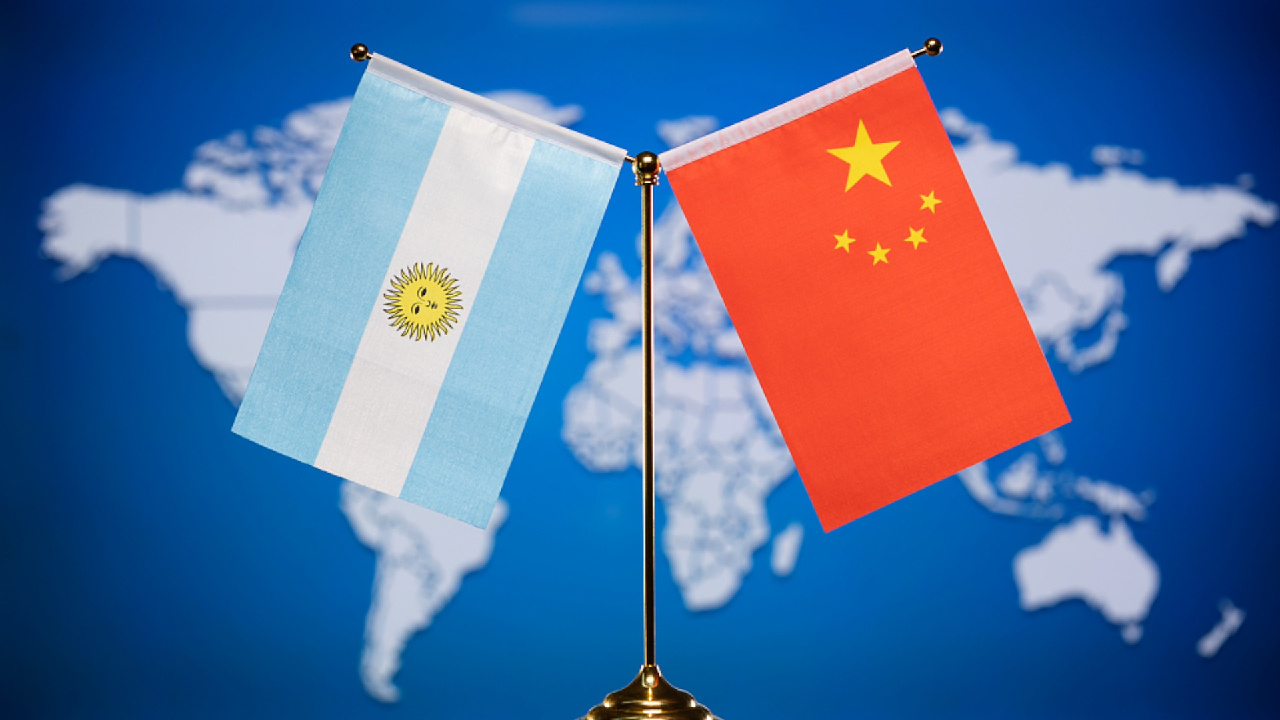Buenos Aires, 1 June 2022 (TDI): Chief of the Cabinet of Ministers of Argentina, Juan Manzur met the Chinese Ambassador Xiaoli Zou and laid an emphasis on strengthening relations between the two countries.
Both countries established their relations in 1945 first as the Republic of China and further as the People’s Republic of China on March 19, 1972. In trade and finance, both countries enjoy bilateral relationships and capacity building.
Durante el encuentro, el Embajador Zou Xiaoli y el Jefe de Gabinete de Ministros @JuanManzurOK conversaron sobre la agenda en común en el marco del acuerdo bilateral entre ambos países, los desafíos actuales y el fortalecimiento de la amistad entre China y Argentina. 🇨🇳🤝🇦🇷 https://t.co/lK6ABt0N8B
— Embajada de China en Argentina (@ChinaEmbArg) May 30, 2022
The two have signed many strategic partnership agreements. China helps support Argentina in its territorial disputes and helps create important relations in trade, commerce, and building infrastructural investments.
China and Argentina
For centuries China has marked itself and proved to be a leading civilization over the rest of the world in the arts and sciences excellence although it is not its own continent, it is a country in Asia yet the second largest country in the world with its powerful army presentation.
The year 2022 has been declared as the year of friendly cooperation between China and Argentina as the two countries celebrate 50 years of diplomatic relations.
Argentina: An Overview
Argentines (also known as Argentinians or Argentineans) is a multi-ethnic and multilinguistic society. Argentina consists of a variety of religious and national origins and diversified ethnicities where most of the population can relate itself to the old world immigrants.
Among the most received immigrants, Argentina is considered to be second in the ranking with an estimated number of 6.6 million people. Nevertheless, Argentinians do not equate their nationality with ethnicity rather the validity lies in their citizenship and allegiance to the country.
In the 18th century, the country was officially known as the Viceroyalty of the Rio De La Plata but after the independence, the name changed to the United Provinces of Rio De La Plata. On February 2nd, 1825 Britain officially recognized it as an independent state.
The treaty of Friendship, Commerce, And Navigation was signed on behalf of Britain, by Woodbine Parish, the Charge D’affairs in Buenos Aries. Argentina is one of Latin America’s largest economies and an important trading partner for the US, China, and the European Union.
Keeping in view the geographical remoteness, it was not difficult for Argentinians to develop a sense of autonomy. In contrast, they catered to their financial needs by nurturing the unofficial smuggled items markets.
The urgency of complete liberalization of commerce, trade, and industry remained a powerful cause for Criollos and Mestizos further stimulating the egalitarian revolutionary ideas and propagation by the French and Anglo -American revolutions.
In 1806-1807, the British invasion of Rio De La Plata enhanced a rather more decisive struggle for even a greater economy from the colonial Metropolitan.
Britain favoring institutional power and stability for Argentina’s recognition led to a serious crisis in the area and led to the election that took place for the first President of Argentina.
This constitutional attempt went futile when the elected President, Bernardino Rivadavia formulated an even more worst and more biased constitution than the previous one towards Buenos Aires agenda, and the war with Brazil failed miserably resulting in bankruptcy.
The new constitution gathered a lot of animosity ending the first Republic by 1828, which however could bring peace with Brazil and establish Uruguay as an independent state.
On 26th September 1828, a coup erupted killing the man responsible for making the treaty, and in counter-coup, a new governor Juan Manuel De Rosas for Buenos Aires Province was brought in on a mission that he would bring stability to the Confederation.
Argentina found itself bankrupt by 1851 as a rogue nation and a surprise military campaign ended the confederacy in 1852. The present institutional framework was outlined in the 1853 constitution, and emphasis was laid on the need for immigration and national defense against aggression.
The constitutional policy was successful. Argentina in a short span of time transformed itself into the most educationally and economically advanced country in Latin America which definitely resulted from immigration and foreign investment.
Argentina earned a reputation for pragmatism and conflict evading, finding conflict resolutions as a tool for the national interest. General Julio Roca was considered the first stalwart in treating every nation on the same level and established progressive relations with the neighboring countries which resulted in the 1915 ABC pact between Brazil and Chile.
Argentina is full of natural resources like Silver, and Argentum and as well as a valuable market for minerals, world’s eighth-largest country with immense plains, deserts, tundra, forest, tall mountains, rivers, and thousands of miles of ocean shoreline.



